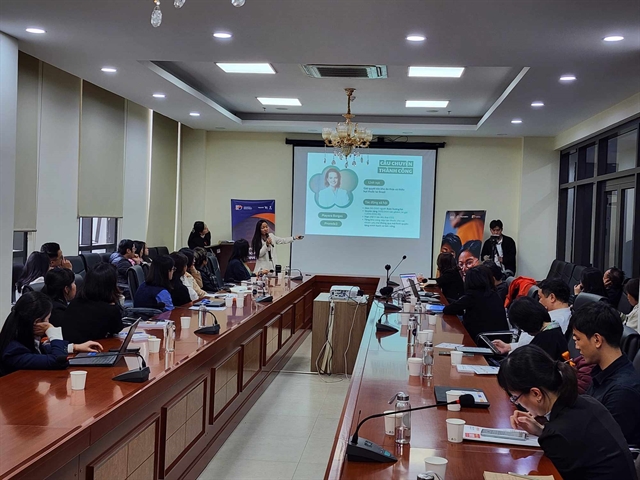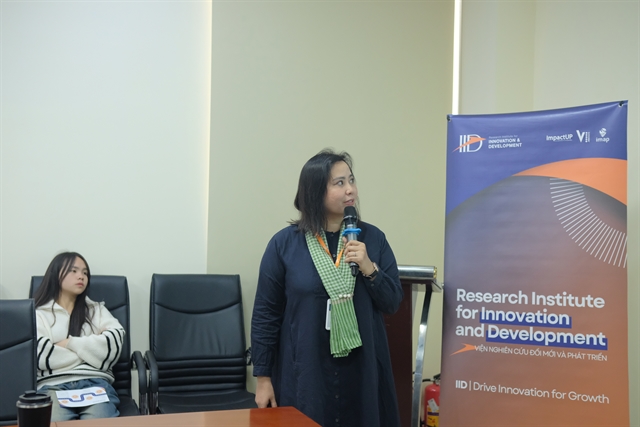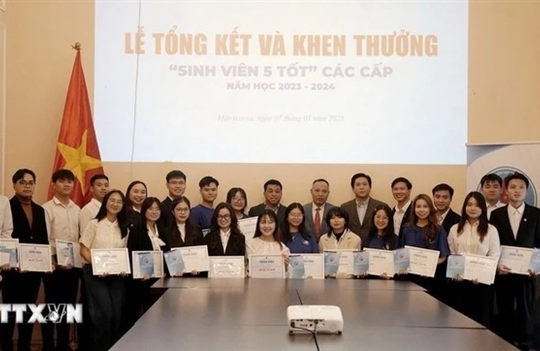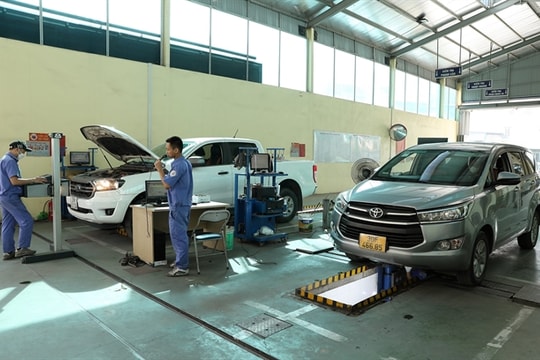 |
| At the seminar a speaker announces the launch of the Bayer Foundation Women Entrepreneurs Award 2025. — VNS Photo Lê Việt Dũng |
HÀ NỘI — While universities are expected to serve as incubators of innovation and entrepreneurship, the investments in these activities, in practice, remain insufficient.
That's according to Trương Thị Nam Thắng, Lead Researcher at the Research Institute for Innovation and Development (IID).
Speaking at the 'Kick-Off 2025: Drive Innovation for Impact' seminar on Tuesday, she emphasised that universities must embrace their social mission rather than being profit-driven.
"Universities should operate as social enterprises with a strong social mission. However, many are more focused on increasing revenue through enrollment than fulfilling their social role," she said.
She revealed that IID has developed the V.innovate platform, featuring two tools: U.innovate and U.impact. These tools assess universities’ capacity for innovation, entrepreneurship and their social impacts.
U.innovate raises awareness among university leaders and fosters their commitment to building vibrant innovation ecosystems. Evaluations involve directors of entrepreneurship centres, faculty and students.
U.impact operates similarly and focuses on measuring social impact. IID plans to publish university rankings based on these metrics within three years, motivating stronger efforts in innovation and social impact.
Drawing from the OECD’s entrepreneurial university framework, IID evaluates universities across eight components, including leadership and governance, knowledge exchange and organisational capacity.
Two tailored surveys—a 170-question survey for faculty and administrators and a 40-question survey for students—form the basis of these evaluations.
In 2024, 25 universities participated in the surveys, yielding mixed results.
Universities scored highest in Entrepreneurial Teaching and Learning, indicating the integration of entrepreneurship into the curriculum.
Internationalisation received the lowest scores, revealing weaknesses in global student exchanges and collaborations with international entrepreneurs.
Knowledge exchange, particularly with the private sector, was another weak point, with universities mostly sharing knowledge within academic circles rather than with enterprises.
Economics and business schools, surprisingly, received lower student ratings for the 'entrepreneurial ecosystems for undergraduates' criterion compared to multidisciplinary universities.
Digital capabilities, such as adopting open-source practices and attracting external innovations, remain underdeveloped in universities.
To strengthen entrepreneurship ecosystems, Thắng recommends universities prioritise recruiting high-quality entrepreneurship educators and providing robust support through attractive remuneration and benefits.
 |
| Lead Researcher Trương Thị Nam Thắng discusses innovation and entrepreneurship at universities during the seminar. — Photo courtesy of IID |
The lead researcher also outlined several IID's programmes to empower entrepreneurs and support Social Impact Businesses in 2025, including Forest Ecopreneur, She Techfest and Social Enterprise Innovation Programme.
The launch of the Bayer Foundation Women Entrepreneurs Award 2025 was also announced at the seminar. The award offers €25,000 in prize money, a six-month training programme, and access to exclusive media and networking opportunities. — VNS
























